Dear Students,
Department of Biology was established in 1974, affiliated with KTU Faculty of Basic Sciences. It took its first students in the 1984-1985 academic year. Those who successfully complete this program are given the title of Biology Department Graduate/Biologist.
Our department, which is the first accredited Biology Department in Turkey and is among the top 10 in terms of providing quality education with scientific publications, covers the structure and functions of all living things, from the macroscopic dimension covering all organisms to the microscopic dimension including cells and molecules, and fields such as genetic engineering and biotechnology. Investigates and educates on the mysteries of life, including; It operates with expert faculty members and microbiology, molecular biology, zoology, botany and plant biochemistry-physiology laboratories equipped with the latest technologies.
The fact that the Biology Department curriculum includes content for different areas of interest is a great advantage for graduates to work in many fields or start their own businesses.
Lessons are supported by laboratory applications as well as field studies and technical visits. Students' knowledge and experience are increased by visiting different regions of our country and biotechnology institutions every year, with both daily field trips and 2-3 day technical tour programs in accordance with the courses they take.
Our graduates have the opportunity to find employment in both private institutions and research centers in public institutions and organizations. Rapid developments in the field of biotechnology create new opportunities for biologists. Opportunities for our students to do internships and for our graduates to find a job can generally be listed as follows: Universities, public hospitals and private hospitals (laboratories, in vitro fertilization units, genetic diagnosis centres), private sector (food and pharmaceutical factories R&D and/or sales officer and environmental consultant ), ministries (Environment, Urbanization and Climate Change, Culture and Tourism, Agriculture and Forestry, Health, National Education), Refik Saydam Hygiene Center, Forensic Medicine Institute, private and public vaccine production centers, General Directorate of Security, Foot and Mouth Institute, Tourism Facilities, Fisheries Institute, TUBITAK, DPT, DSI, Teaching (in case of obtaining a formation certificate) and Municipalities.
The majority of education and research activities in our department are carried out by faculty members who are among the top ranked students in their fields in Turkey. Our department faculty members carry out various research projects supported by TÜBİTAK, Ministries and the University, using the Department infrastructure. Undergraduate and graduate students can participate in these researches or carry out their own proposed studies jointly under the supervision of laboratory managers.
In the Department of Biology, flora, fauna, ecology, population genetics, biodiversity and diversity conservation, biotechnology, proteomics, genomics, transcriptomics, systematics, antimicrobial activity, cytogenetics, insect pathology, biological control, biopesticide development, gene expression and characterization, bacterial genetics. Studies are carried out on subjects such as plant physiology, environmental microbiology, cell culture and virology techniques, experimental animal culture, culture collections, herbarium, terrarium, microbiology, molecular biology, molecular genetics, zoology and botany. The faculty members of our department have discovered many new plant species, which have been identified for the first time by the scientific world, through their studies. Additionally, many new bacterial species and viral strains were isolated, described and named by department faculty members for the first time. Various physiological mechanisms were revealed for the first time as a result of studies carried out by faculty members of the department. Genome features of many viruses have been revealed through gene organization and complete genome mapping studies of viruses.
Students' studies are supported by both the university and various external projects. Seminars, symposiums and workshops are regularly organized in our department, and our students also participate in these scientific activities.
In our department, students who wish can take an English preparatory program. This enables students to eliminate their English deficiencies and increase their English reading and comprehension levels. Thus, efforts are being made to produce more sought-after graduates. The fact that our graduates can also receive pedagogical formation during their undergraduate education has paved the way for biologists to be reappointed as teachers. Successful students can take their final theses in practice and thus benefit from the opportunities offered to graduate students at the undergraduate level.
By making bilateral agreements with higher education institutions in Europe, our students, both at undergraduate and graduate levels, are provided with the opportunity to study abroad for 1 year within the scope of education programs such as Erasmus and Lenardo da Vinci. In addition, with the Farabi exchange program, students are given the opportunity to study at the higher education institution of their choice in the country for 1 year.
In the Department of Biology, students have a wide range of opportunities to enter graduate programs according to their interests. Graduate students; can conduct research with modern facilities. They prepare their master's or doctoral theses with the results obtained from these researches and can produce articles at both national and international levels from these data. Various projects are carried out by both the university and TUBITAK resources to support the studies of students. Scholarships can also be given to students, especially thanks to TÜBİTAK projects.
In addition to undergraduate education, our department also provides postgraduate (Master's and Doctorate) education as the Department of Biology affiliated with the Institute of Science. Faculty members of our department teach graduate courses and supervise theses in various interdisciplinary graduate programs. Interdisciplinary Graduate Departments where our faculty members work:
Institute of Science and Technology: Biotechnology, Environmental Sciences and Occupational Health and Safety,
Institute of Health Sciences: Natural and Herbal Products, Cosmetic Products
Our Educational Objectives
The Department of Biology has adopted the basic principles of society and the world of science, is equipped with both theoretical and practical knowledge in the field of life sciences in line with today's needs, adheres to ethical values, respects differences, is committed to the production and application of knowledge by using research opportunities in accordance with the requirements of the age, and has the responsibility to produce scientific research in accordance with the needs of society. It aims to train biologists who are thoughtful, courageous and entrepreneurial.
Our students
In addition to contributing to their own professional development by working on scientific research projects during their education (within the scope of graduation projects and/or 2209 TÜBİTAK projects), our students also support volunteering in club events and social responsibility projects.
Our academics
In addition to the courses they give, our faculty members also continue their scientific research through the KTÜ BAP, TÜBİTAK and TAGEM projects they carry out or try to undertake. Collaborations are established with some universities abroad.
Our Departments
Internship Program
In addition to the required course credits, KTU Faculty of Science students are required to complete an internship (practical work) in order to increase their practical knowledge and skills in a way that will contribute to their undergraduate education, within the framework of the Karadeniz Technical University Faculty of Science Faculty Internship Directive rules, in addition to the course credits required to complete in order to be eligible to receive a bachelor's degree.
The total internship (practical work) period required for our students' graduation is 20 (twenty) working days. Students who will be doing an internship can do an internship without a break during an internship period.
With the internship program, our students can find internship opportunities in many institutions and companies at home and abroad.
Exchange Programs
Student exchange programs at our university are carried out by the Foreign Relations Office Exchange Programs Coordinator. Exchange programs provide our students with the opportunity to receive education and do internships at home and abroad. Within the Exchange Programs Coordinatorship:
1) Erasmus+ Exchange Program Unit
2) Farabi Exchange Program Unit
3) Mevlana Exchange Program Unit
There are 3 different units: To get detailed information about exchange programs, you can check out our university's Exchange Programs Coordination page.
Course Information
Click here for our department's Course Information Packages, Course Curriculums, Course Compliance Programs and Course Catalogs.
Our Achievements in 2022-2023
As a result of the TÜBİTAK 2209-A Program 2022 2nd Term applications, 4 of our projects were entitled to be supported.
As a department at our university, which has the status of a Research University, there are interdisciplinary research and application opportunities that will enable our students to consolidate the theoretical knowledge they have acquired during the education process in practice.
In addition to laboratory applications, course contents are supported by field studies and technical trips. Students' knowledge and experience are increased every year by visiting different regions of our country and biotechnology institutions with both daily field trips and 2-3 day technical tour programs in accordance with the courses they take.
We have many undergraduate, graduate and research laboratories where our students and academics can conduct their studies. Some contents related to laboratories are shown below.
Our Undergraduate and Graduate Research Laboratories
Undergraduate Student Laboratories
We have 4 (four) student laboratories: L101, L102, L103, L104. The majority of our students' practical training is carried out here.
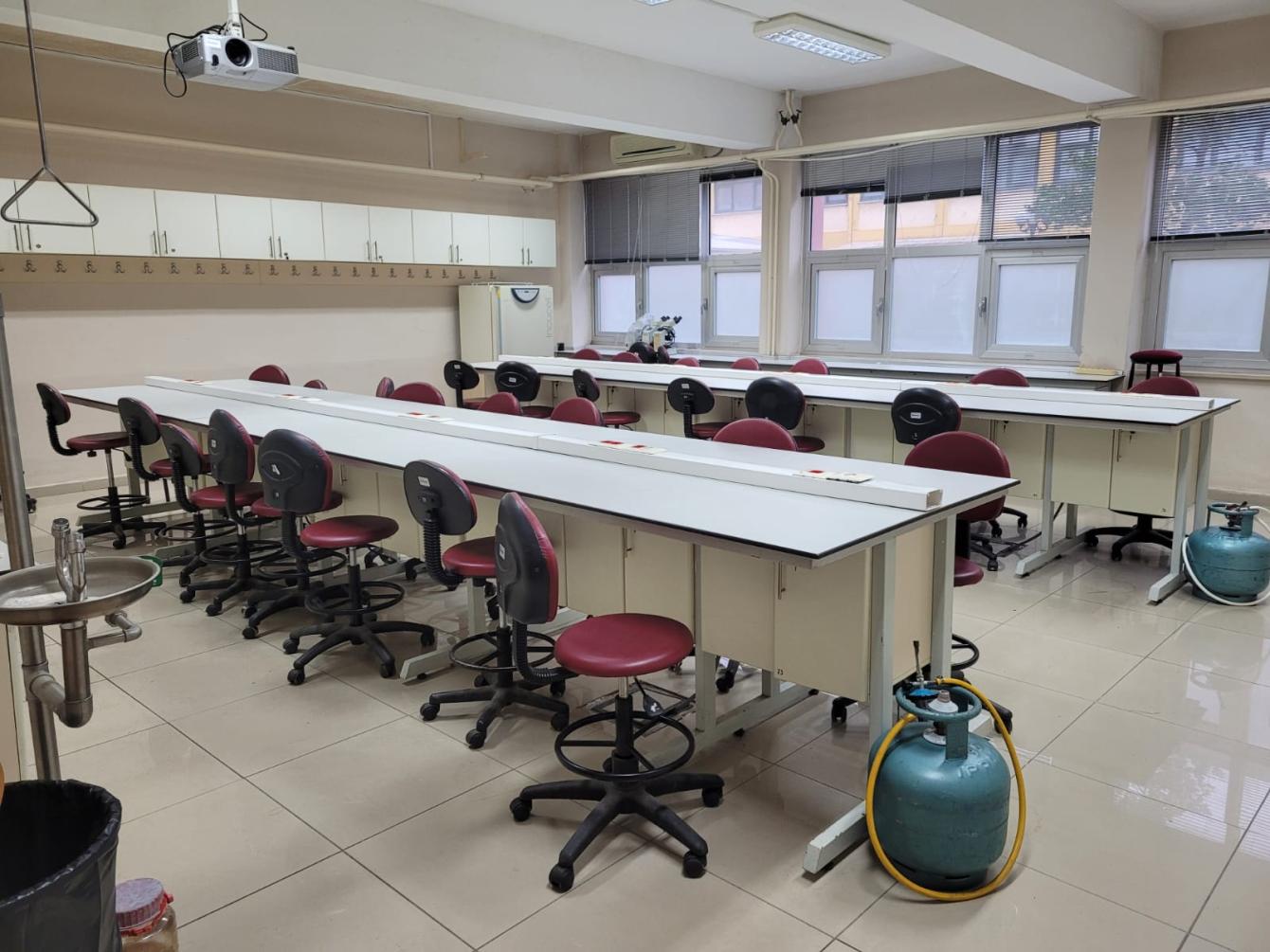
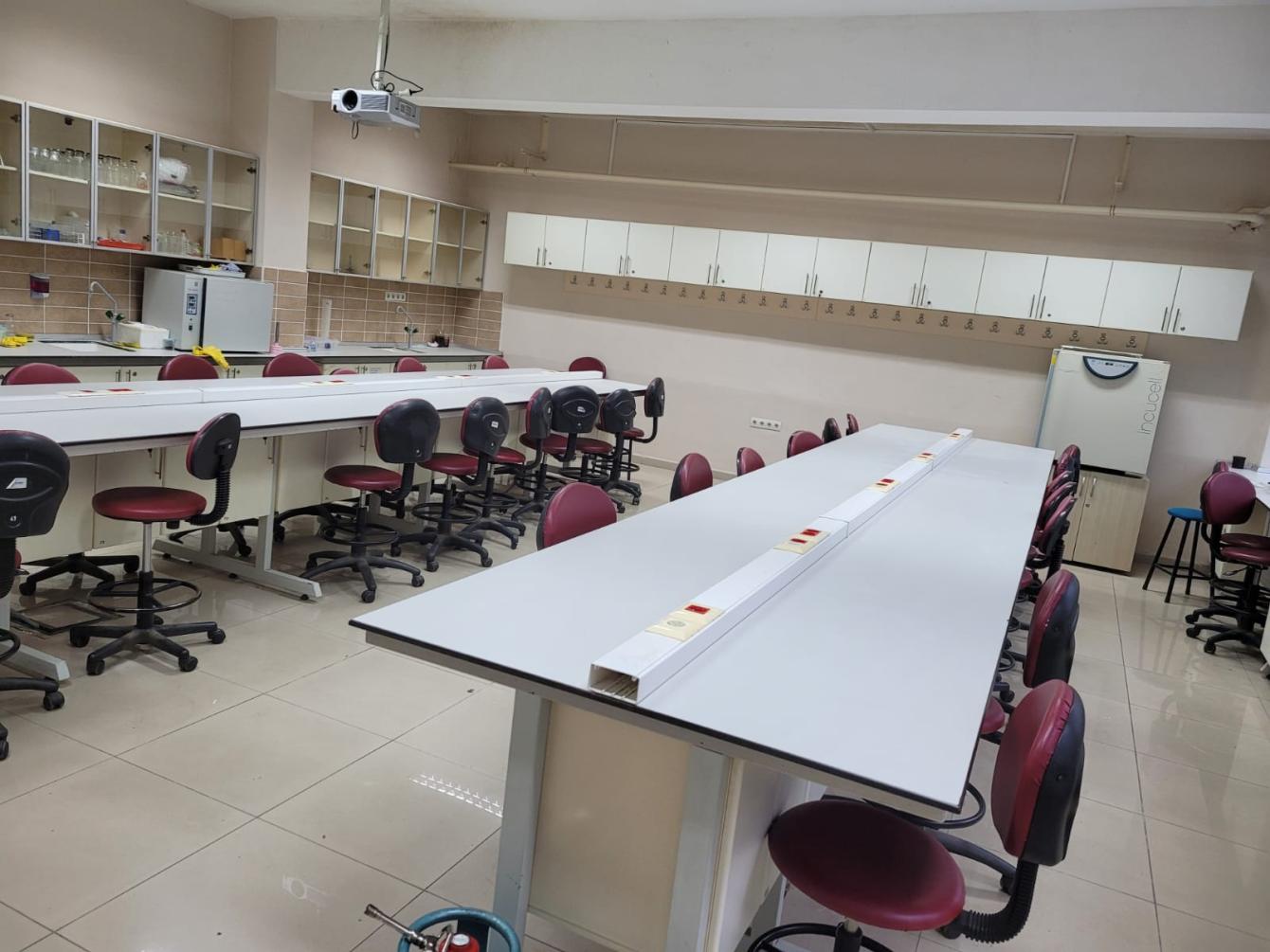
Central Research Laboratory
? It is a common laboratory of our University, which contains the necessary devices to be used in undergraduate and graduate research.
OUR RESEARCH LABORATORIES
Botanical Research Laboratory-I
? Studies are carried out in the fields of seed plant systematics, plant tissue culture, plant morphology and anaotomy.
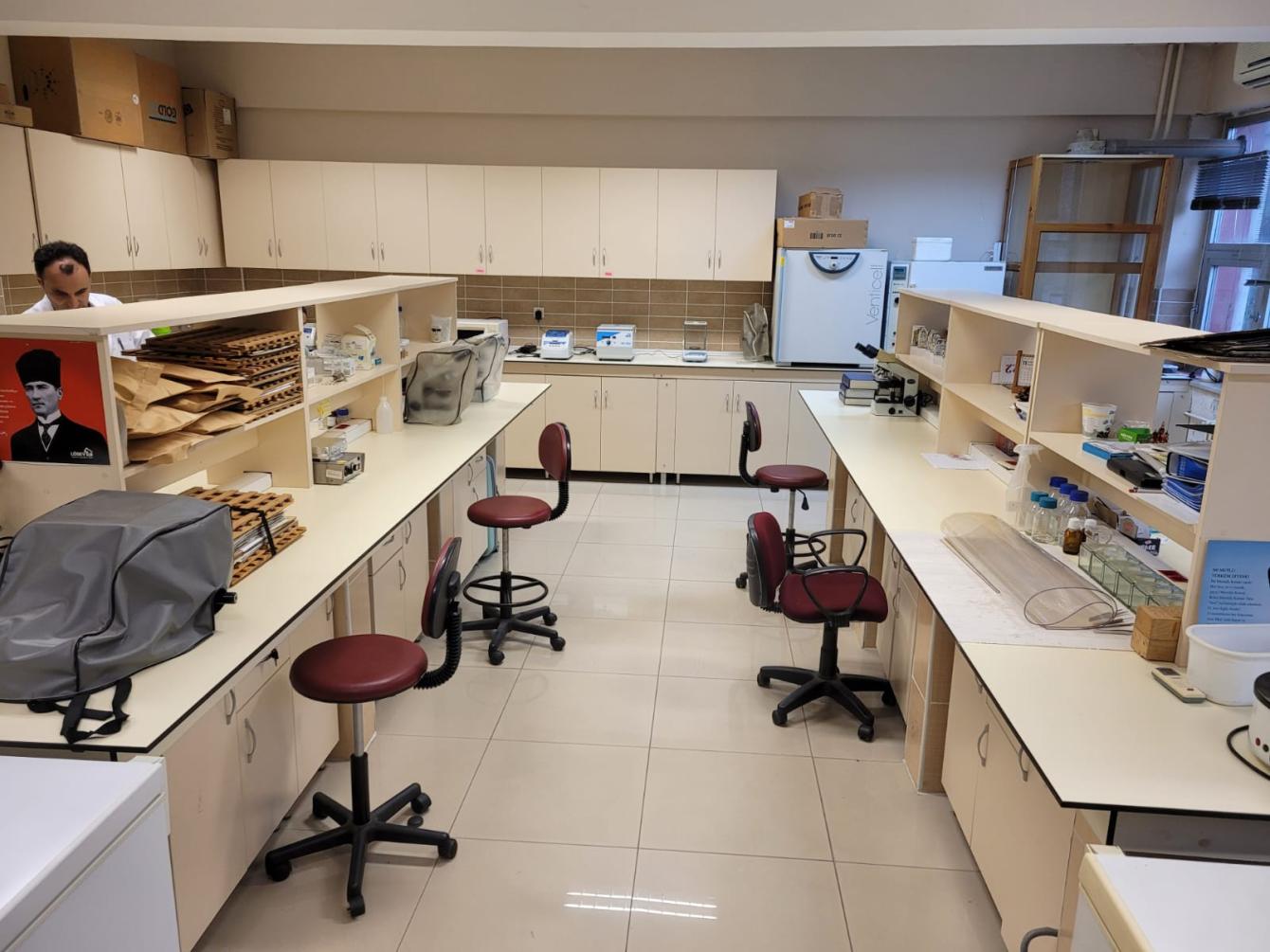

Systematic Botany Research Laboratory
? Studies are being carried out on the systematics of seedless plants, classification of bryophytes and lichens.
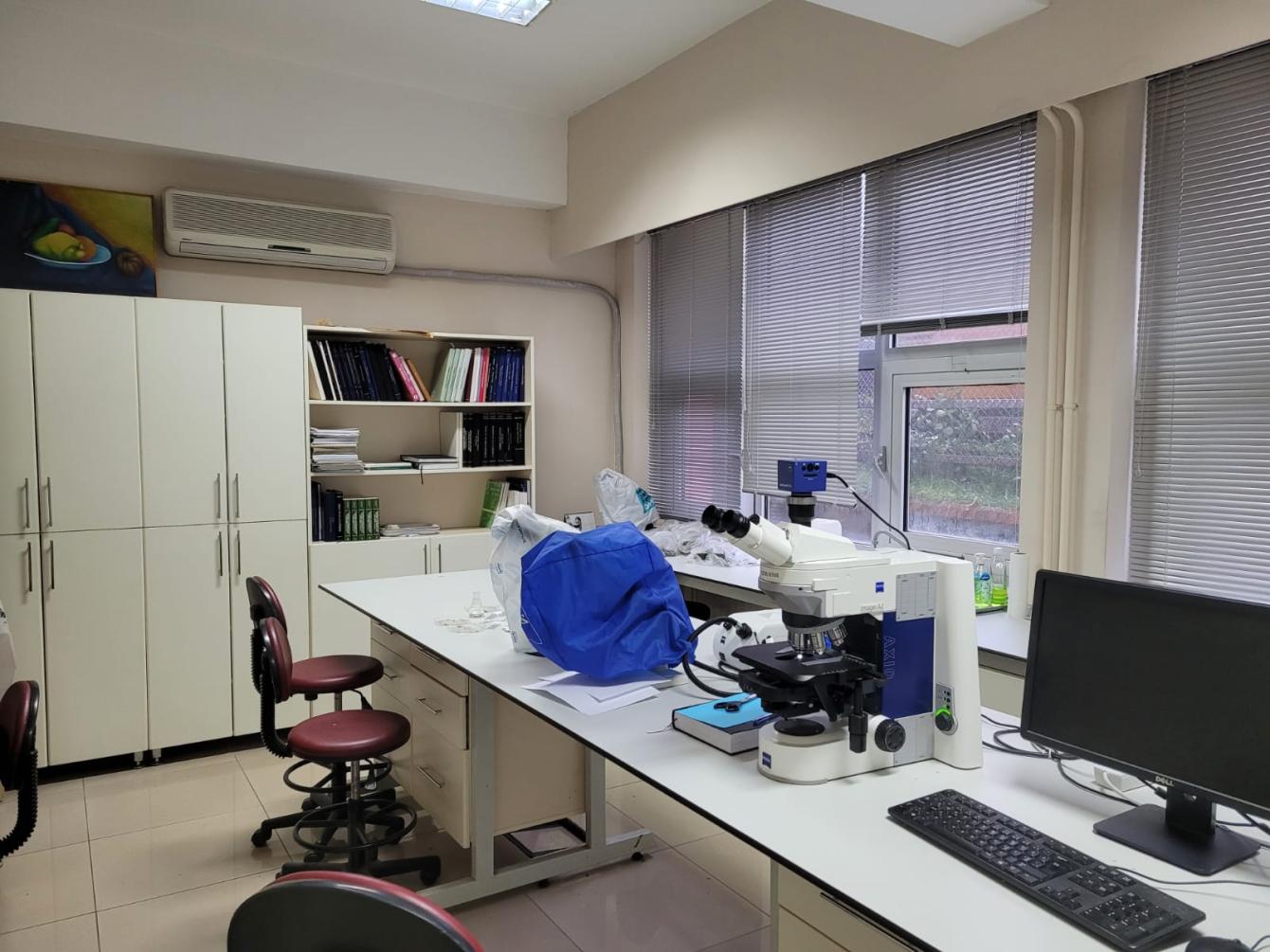
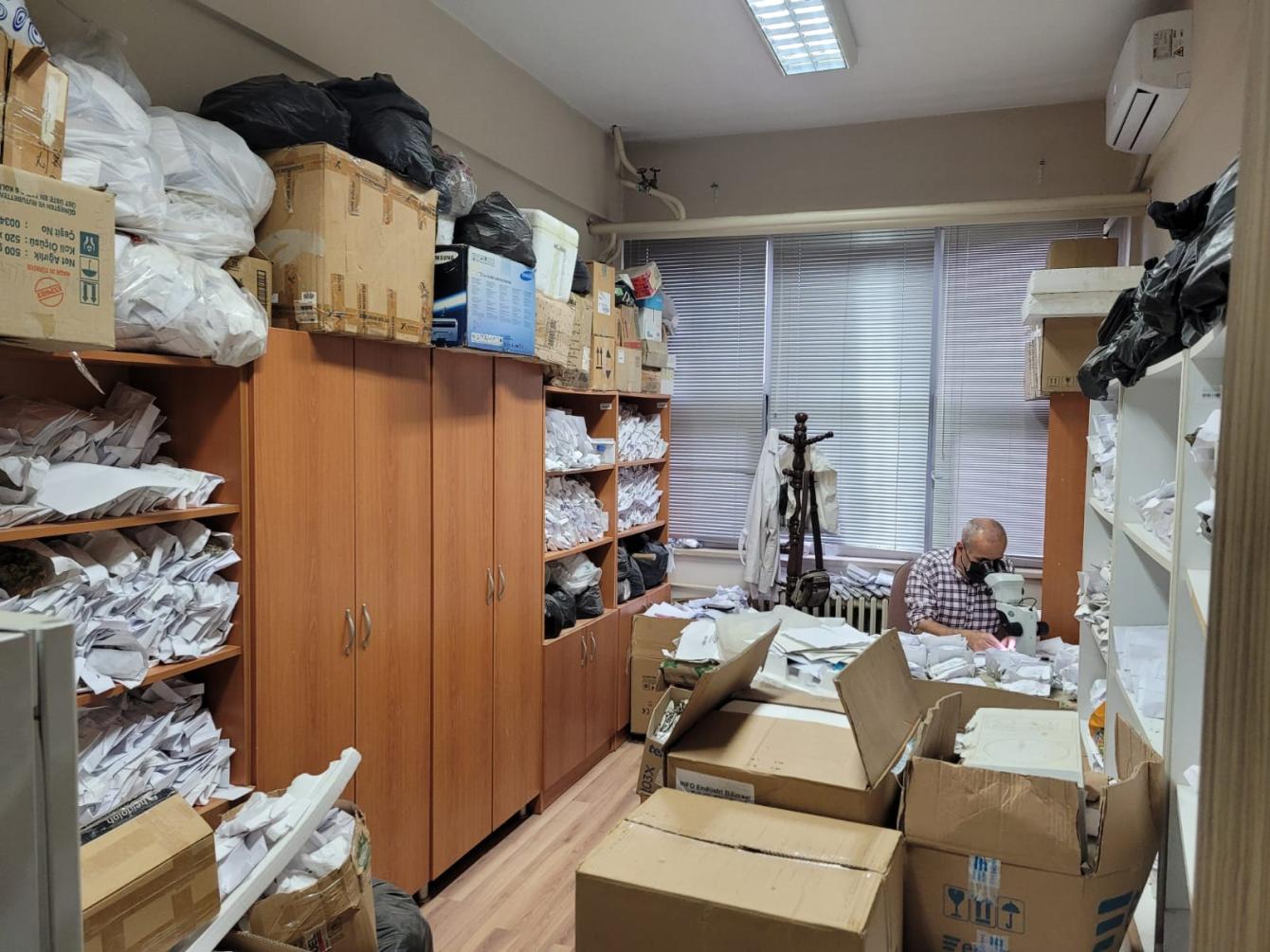
Plant Physiology Research Laboratories
? In our laboratory, in addition to plant physiology and stress physiology, physiological and agricultural research is also carried out to increase the productivity and tolerance of plants by adding micronutrients to plants grown in agricultural areas by creating stress conditions (drought, high temperature, salinity...) that plants are exposed to in the external environment. In addition, studies are carried out in our laboratory on the synthesis of EDTA and EDDHA-derived compounds, which are used as effective micronutrient element chelators in agriculture, and their usability in plant nutrition. In experimental studies, plants such as corn (Zea mays), wheat (Triticum aestivum), beans (Phaseolus vulgaris), soybeans (Glycine max) are some of the plants studied in soil, water culture or nutrient media under various stress conditions.
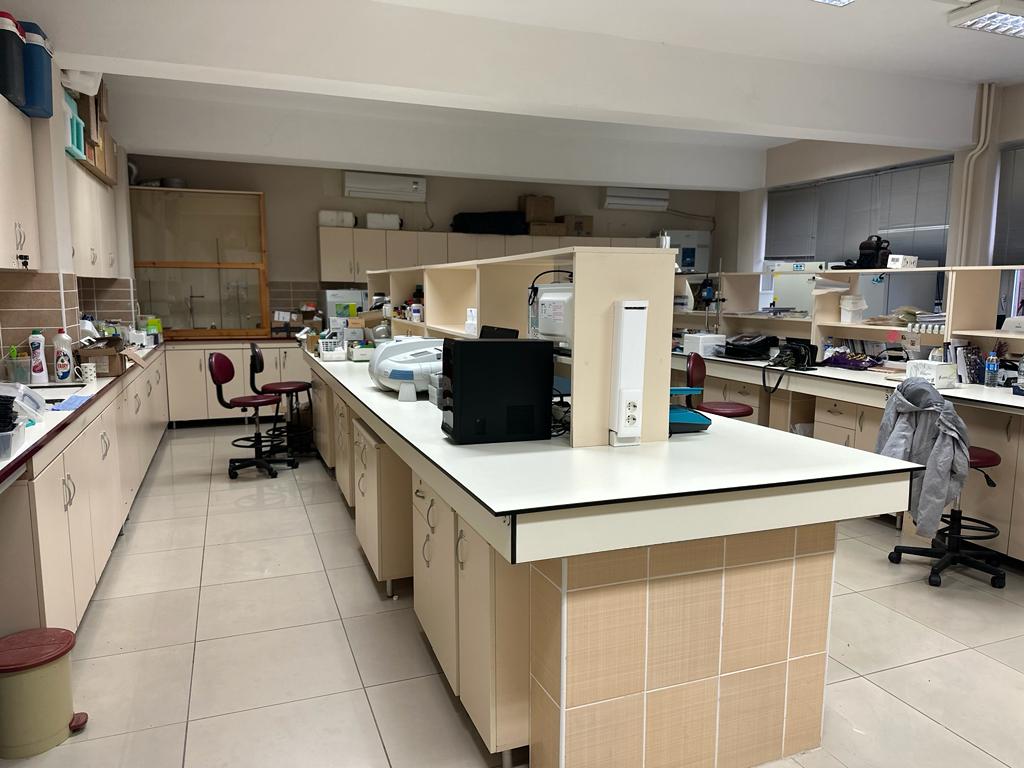
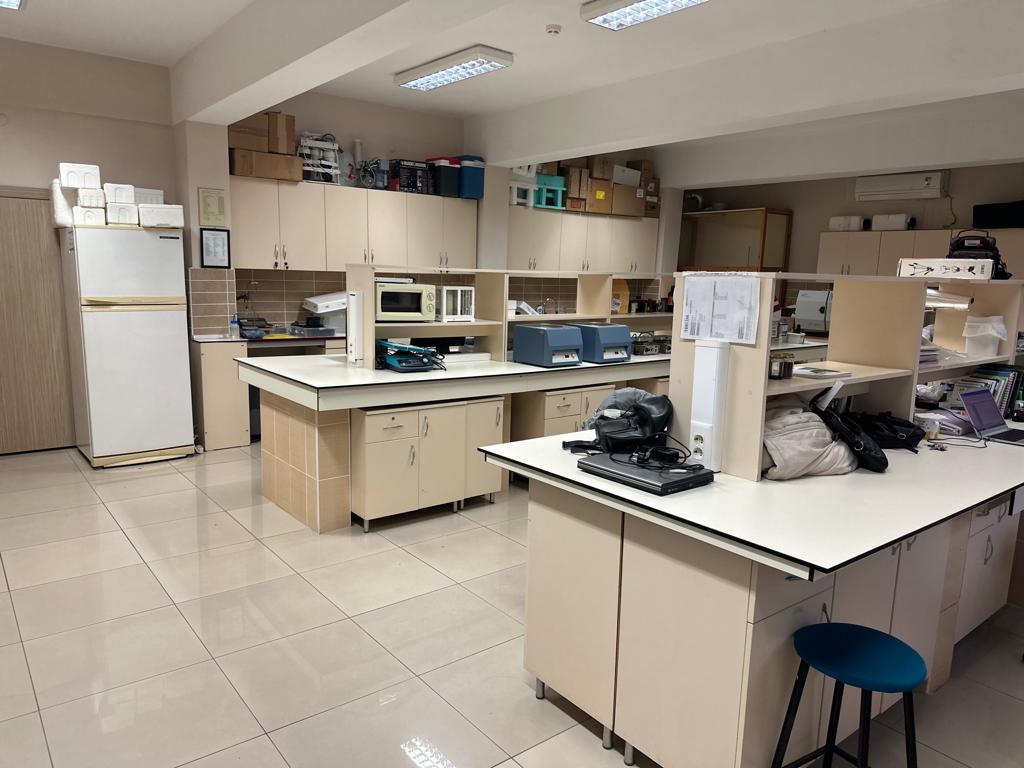
Plant Metabolite Research Laboratories
Metabolomics is now recognized as a comprehensive, sensitive and practical approach to obtain useful information on the composition of a pool of metabolites present in any organism, including plants. Investigating metabolomic regulation in plants is essential for understanding their adaptation, adjustment and defense responses to environmental stresses through the production of a large number of metabolites. Furthermore, metabolomics can be readily applied for phenotyping plants and therefore has great potential to be used in genome editing programs to develop superior next generation crops. The plant metabolite laboratory includes gas chromatography-mass spectrometry (GC-MS), liquid chromatography-mass spectroscopy (HPLC, LC-MS), capillary electrophoresis-mass spectrometry (CE-MS), Advanced analytical tools such as Fourier transform ion cyclotron resonance-mass spectrometry (FTICR-MS), matrix-assisted laser desorption/ionization (MALDI), ion mobility spectrometry (IMS) and nuclear magnetic resonance (NMR) are used for metabolic profiling in plants. Furthermore, identifying the genetic background behind the diversity of primary and secondary metabolites produced by plants will help to improve and enhance stress tolerance. Manipulating and overexpressing genes related to the biosynthetic pathway of secondary metabolites could be a solution for plant tolerance to environmental stress conditions.
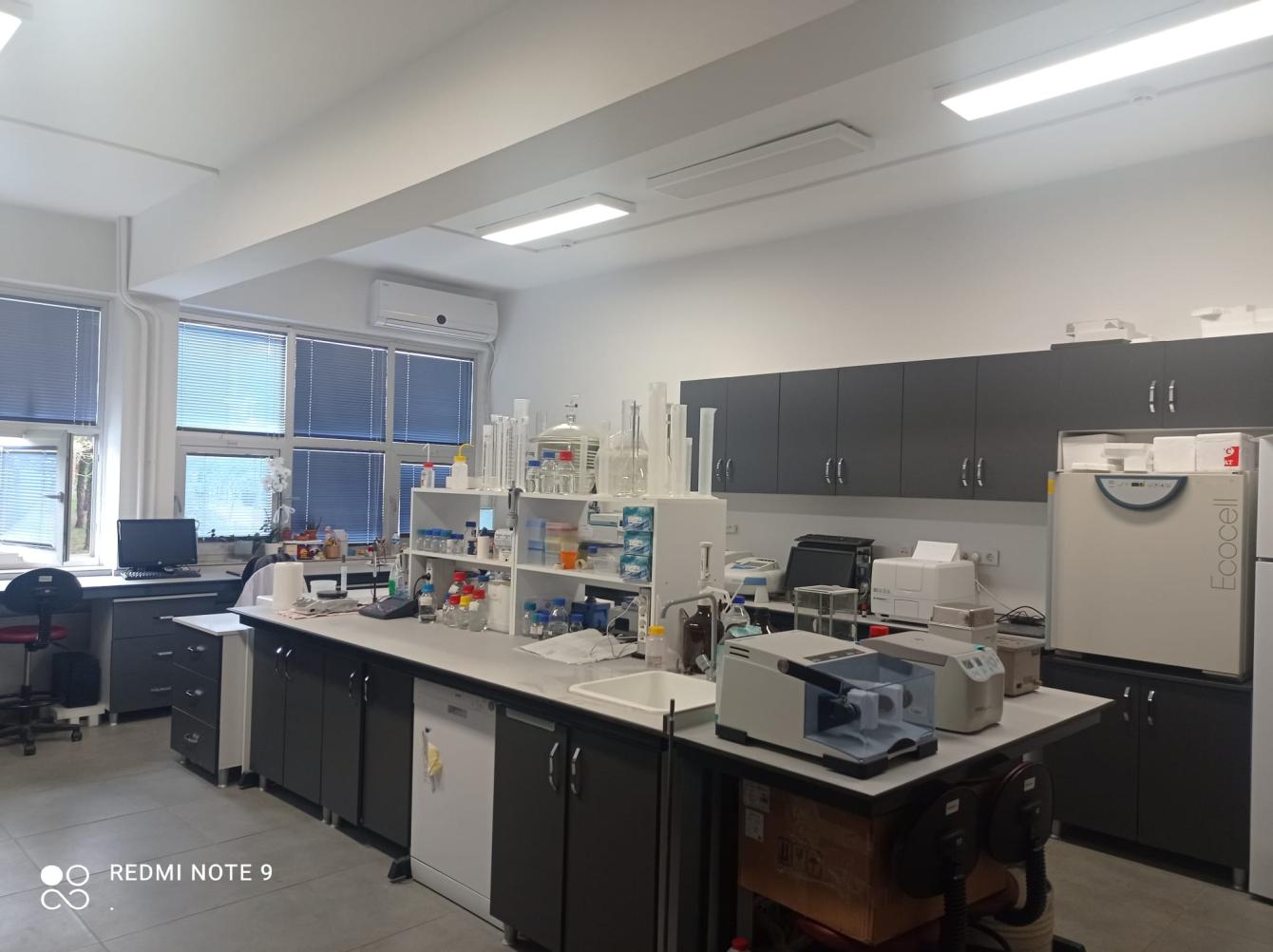
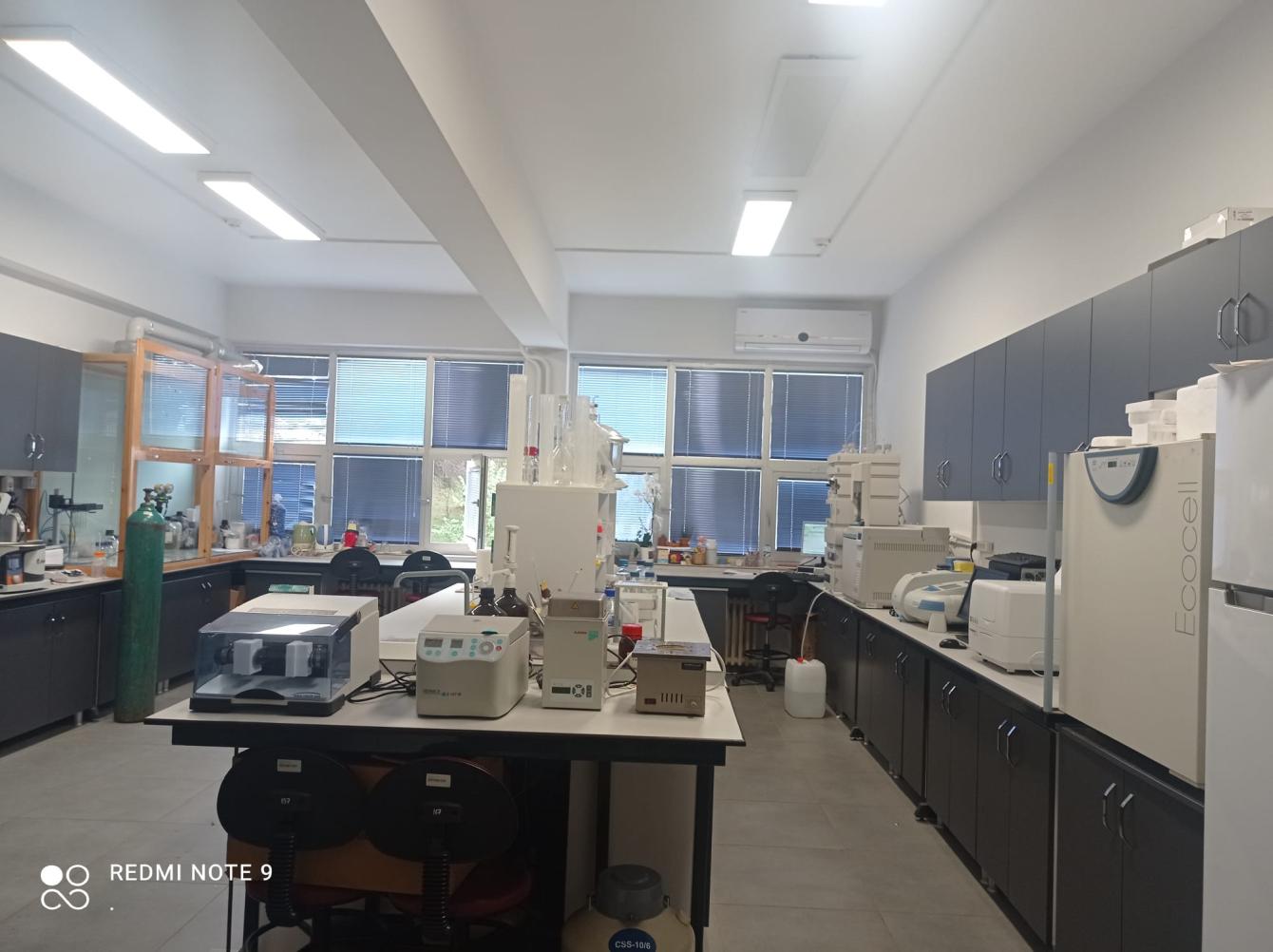
Microbiology Research Laboratory
? Molecular studies, biological-based product development (formulation) studies, insect cell culture and virology (on the issues of identification and characterization of entomopathogenic microorganisms (bacteria, fungi and viruses), amplification of gene regions effective in biological control, and making the host more sensitive or resistant to infections). Research studies on infection) are being carried out.
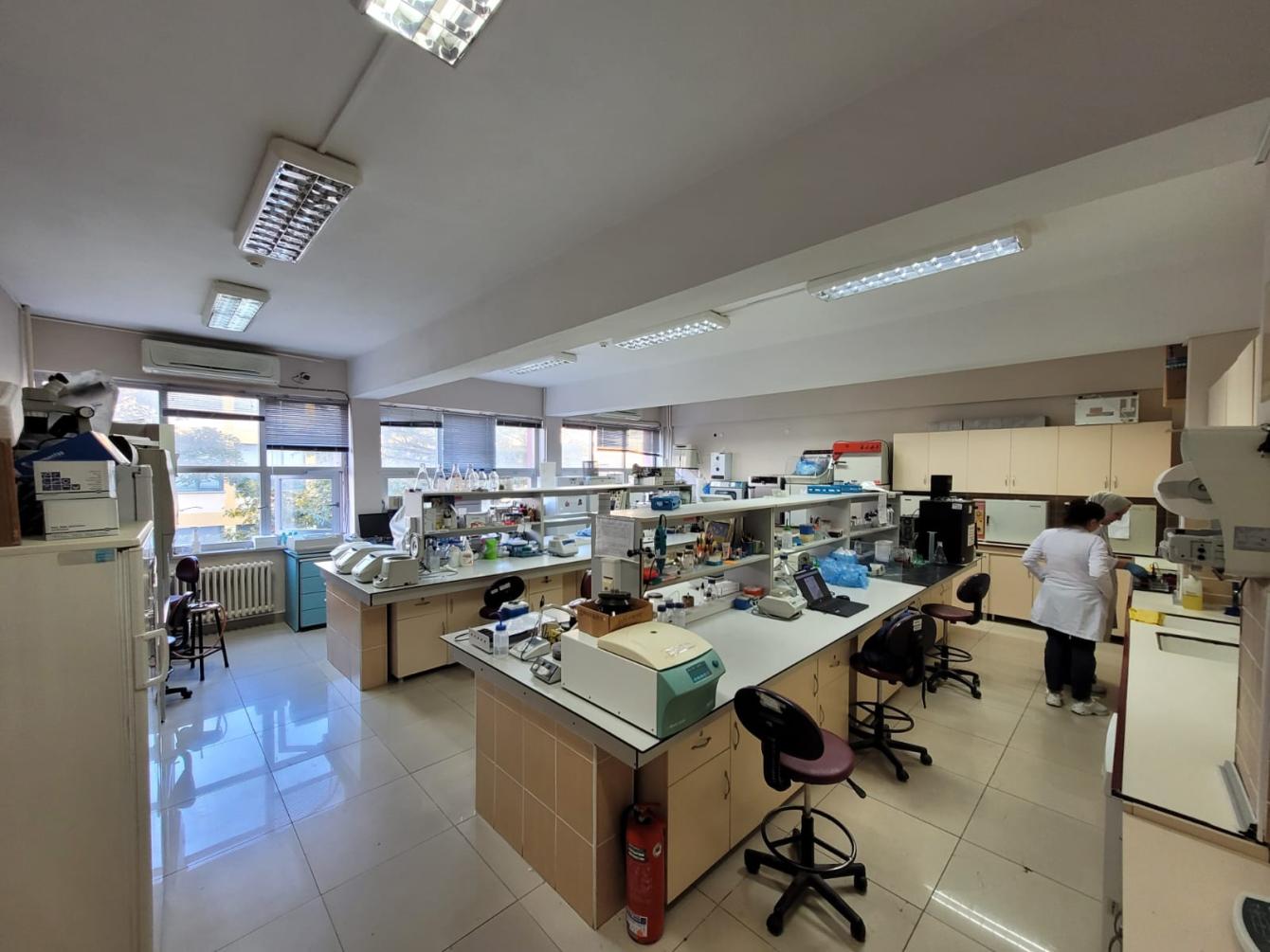
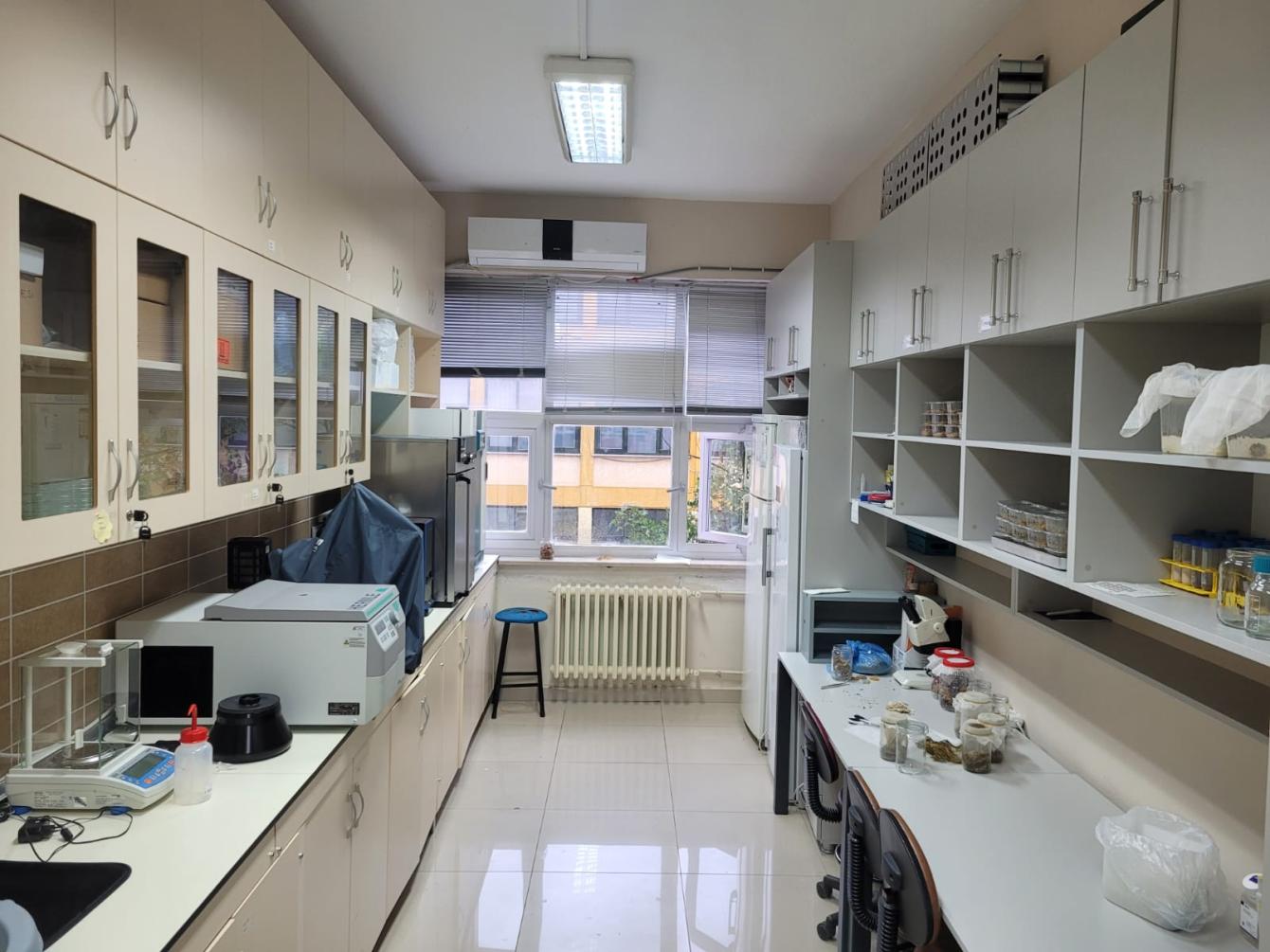
Molecular Biology Research Laboratory
? In addition to studies on obtaining thermophilic enzymes suitable for industrial use, gene cloning, protein expression, protein purification, enzyme characterization and optimization, bacterial species identification (phylogenetic classification) studies are carried out.
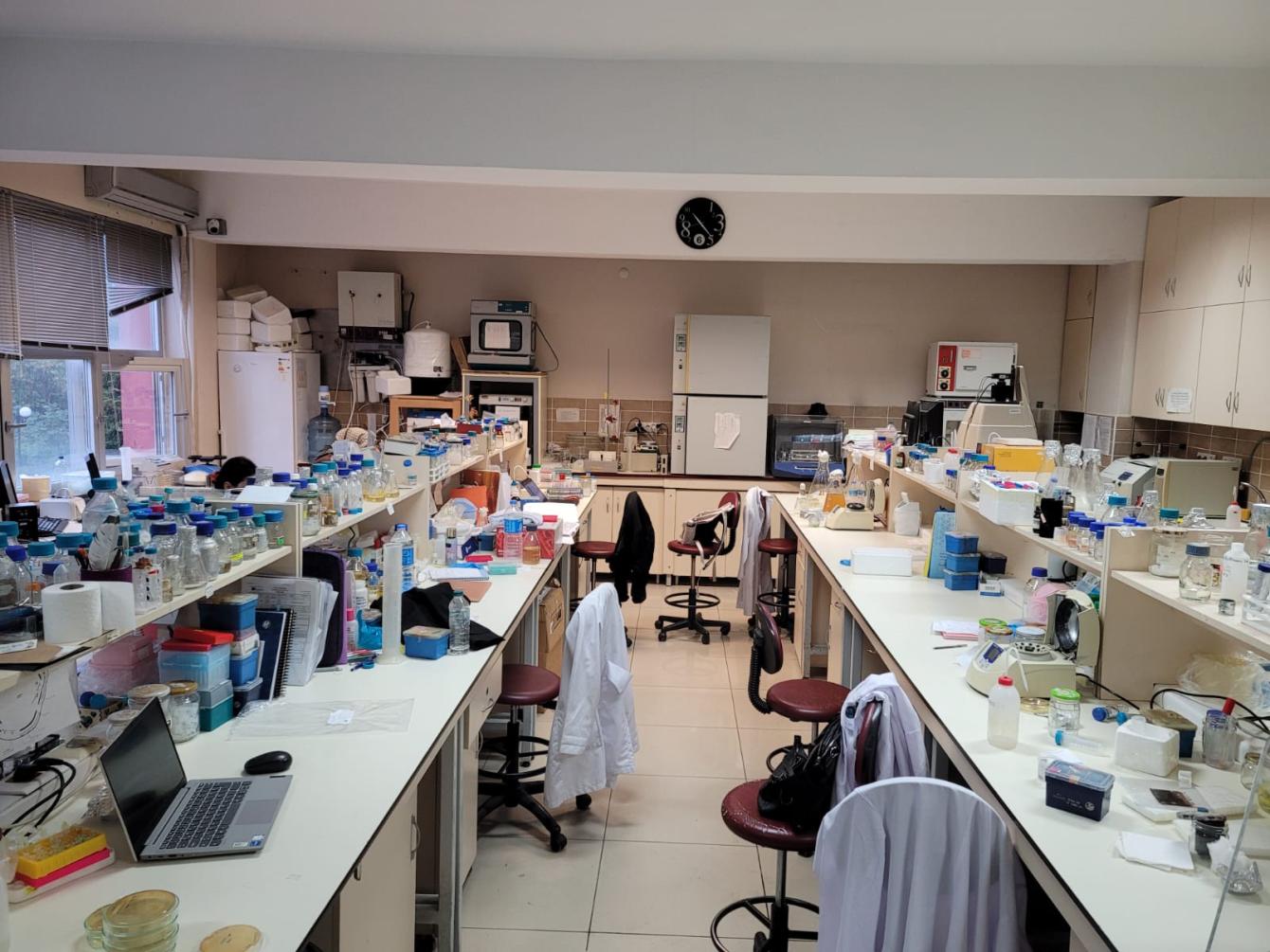
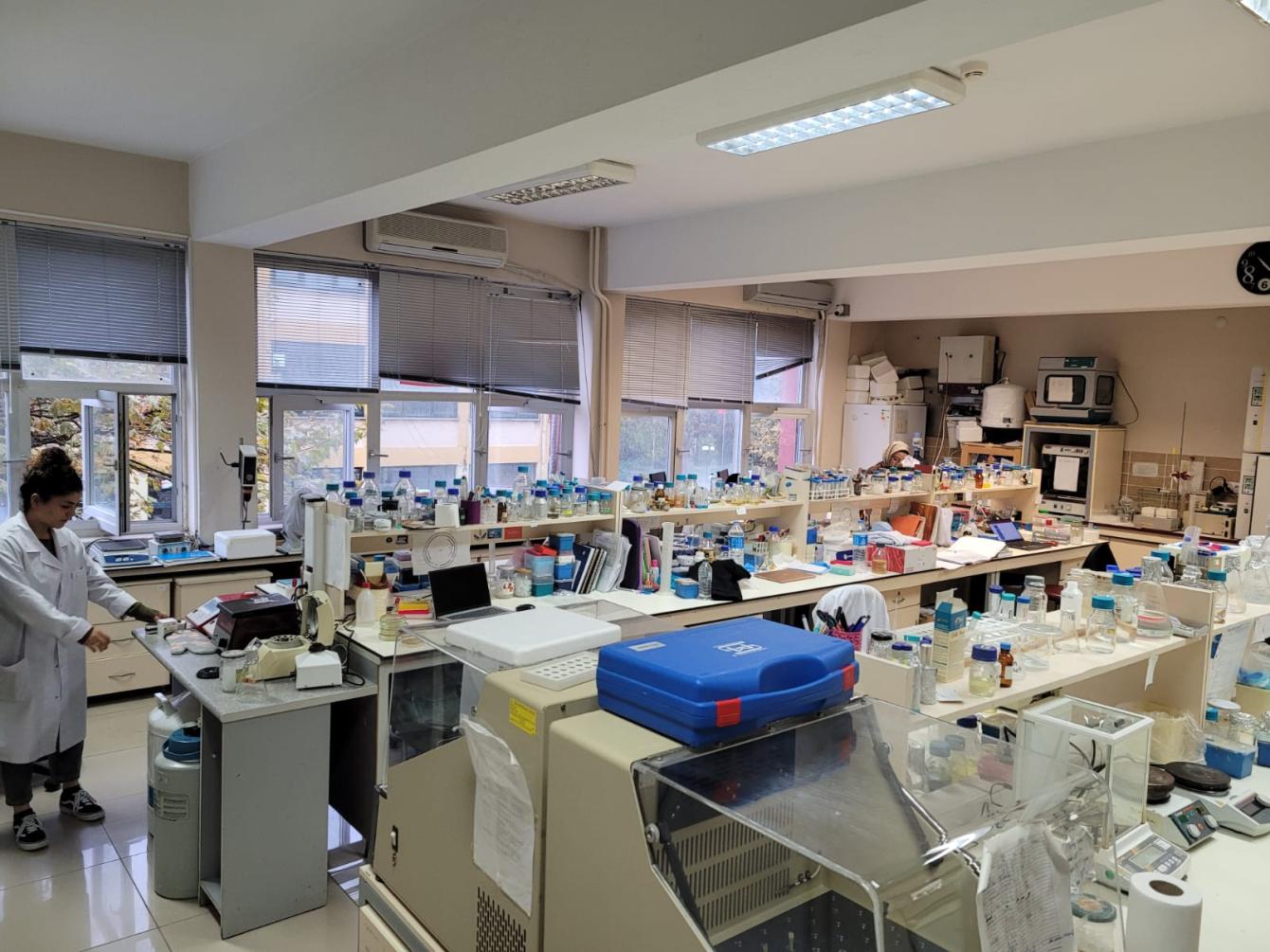
Zoology Research Laboratory
? Herpetology (amphibians and reptiles)
Studies are carried out in the fields of systematics, phylogeny, reproductive biology, developmental biology, ecology, conservation biology, toxicology, population genetics and age determination studies in amphibians and reptiles.
? Animal Physiology
Due to the ethics committee requirement for vertebrate animal models, invertebrate animal models can be used. In our laboratory, the model insect Galleria mellonella L. (Lepidoptera: Pyralidae) is used for animal physiology studies. Studies on the toxic and pharmaceutical effects of various chemicals have been carried out with the model insect culture, which has started to be grown since 2019. In these studies, the effects of the applied substances on the animal's immune system, antioxidant system and biological development were investigated. Thanks to the use of this insect as a model, we have the appropriate infrastructure in our laboratory on the immune system, antioxidant system and biological development.
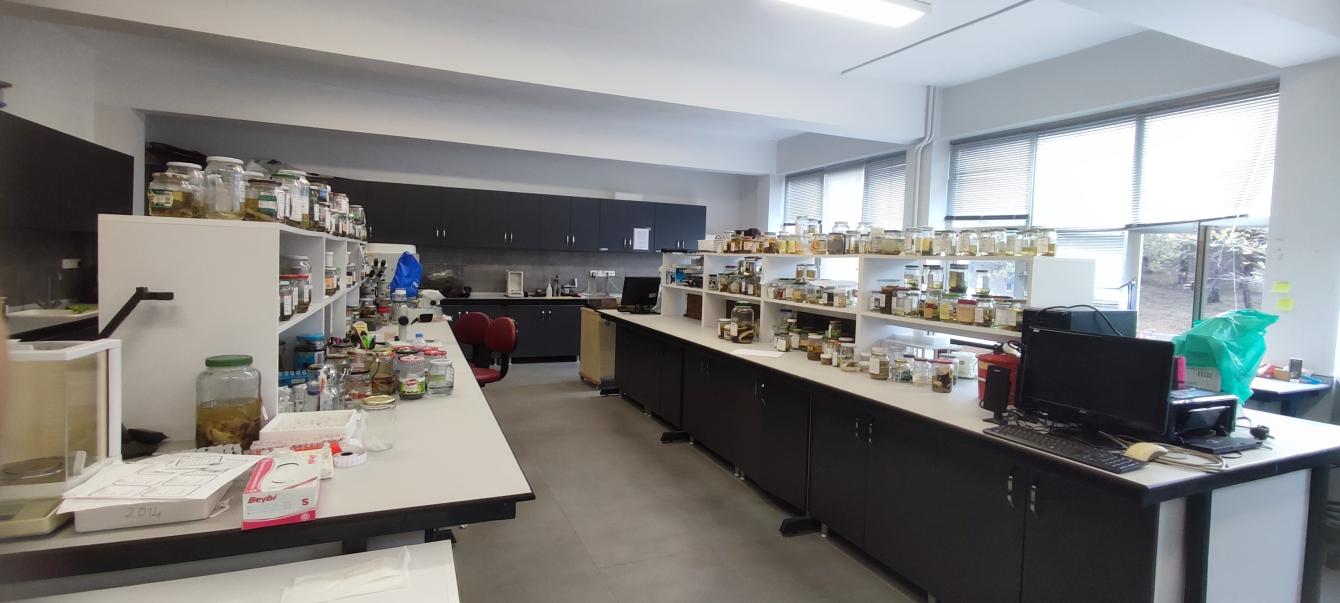
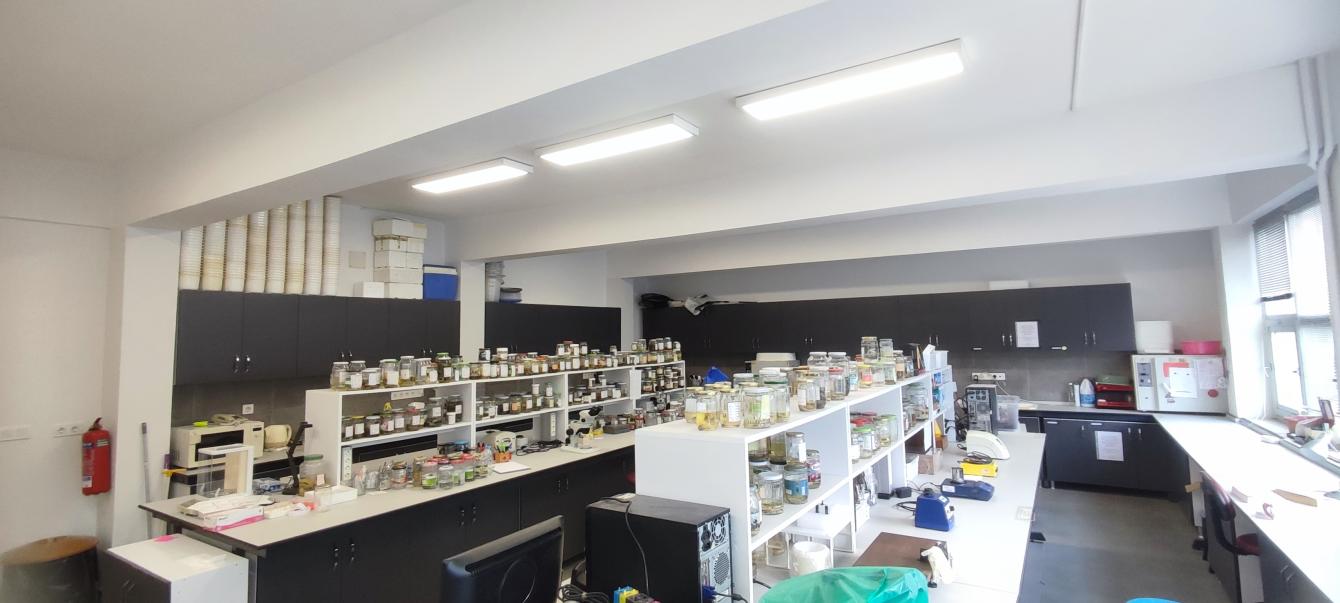
Click to get information about Double Major and Minor Programs (application, acceptance and registration conditions, etc.).
|
Biology Program Central Placement Quota and Base Scores by Years |
||||||||
|
2021 |
2022 |
2023 |
||||||
|
Quota |
0,12 Coefficient |
Base Score |
Quota |
0,12 Coefficient |
Base Score |
Quota |
0,12 Coefficient |
Base Score |
|
30 |
389433 |
260,47493 |
30 |
397.646 |
272,12476 |
42 |
392,04377 |
286,37222 |
Scholarship support is available from YÖK for students who are placed in the first 3 places in our department.
TUBITAK 2247 - C Trainee Researcher Scholarship Program (STAR) scholarship opportunity is also given to students in the top 3 and/or among the top 200,000.
Starting from the spring semester of 2022-2023, our 2nd year and above students can take Pedagogical Formation education simultaneously with their undergraduate courses and in line with their own wishes.
Click here for detailed information about pedagogical formation education.
Students who are accepted to the National Internship Program have to do their compulsory internships for 20 working days in the 1st, 2nd, 3rd and 4th grades. However, they appear before the internship commission from the 2nd semester of the 3rd grade and are evaluated. It is also recorded in their transcripts in the 2nd semester of the 3rd grade.
In addition, students who want to do an internship voluntarily can do their internship provided that they arrange the institution where they want to do their internship.
Click here for the National Internship Program web page.
Voluntary intern students from different universities are accepted to our Research Laboratories. For this, the information and approval of the faculty member and the Head of Department is required.
08 July 2024